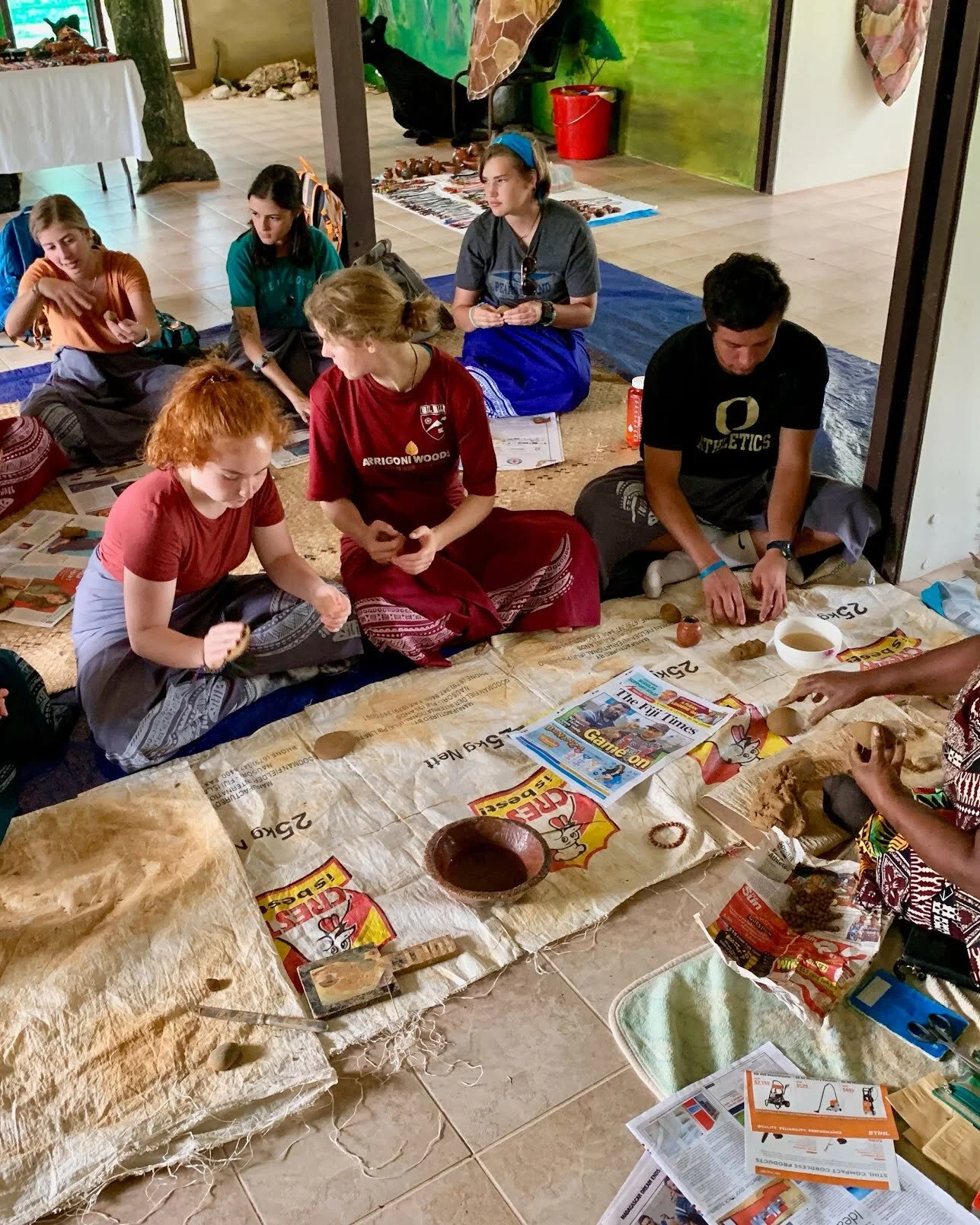After high school, Matthew Yam found himself in places much different from his home in Los Angeles. For 13 weeks in 2018, he stayed with host families in the Dominican Republic and Costa Rica. In the former, Yam helped build aqueducts in the mountains and latrines in the sugarcane fields. In the latter, he lived with a cacao farmer without electricity or internet access, helping the farmer start building a garage by hand.
“I was super scared in the beginning—I questioned myself those first two nights,” says Yam, 19. “But that faded. I got used to the environment, and I learned to be adaptable.”
Yam is one of hundreds of students to apply or graduate from a college program abroad offered by Verto Education, based in Berkeley, Calif. The company hopes to improve its study-abroad offerings with a newly raised $6.3 million seed round of funding. First Round Capital, GSV Ventures, 10xImpact, Box Group and others participated in the round.
Verto Education participant Jason Diemer snorkels during an environmental science course held in Fiji. (PHOTO CREDIT: VERTO EDUCATION)
The new financing will help Verto hire more employees and grow to eight program offerings next fall, says CEO and co-founder Mitch Gordon. He says his company operates like a college, with its own admissions staff. But it needs to grow its marketing efforts and continue to improve its programs, says Gordon, 41.
Founded in 2017, Verto accepts first-year college students aged 17 to 22 for a semester traveling to Central America, the South Pacific and Southeast Asia to learn about a variety of subjects including environmental science, public health, business and finance. The company also offers on-campus programs in places including Ireland, England and New Zealand. In 2020, Verto will include on-campus programming in Italy and Spain.
Students accepted by Verto are guaranteed acceptance into at least one of Verto’s 28 partner schools and with enrollment reserved the spring or fall after their trip. Partner schools include University of Oregon, University of Vermont and Bucknell University in Pennsylvania.
A Verto program can cost between $10,000 and $20,500 a semester, which pays for items including meals and entry fees to parks. Students can use financial aid and scholarships toward payment, but that tuition doesn’t include airfare and a few other costs. The program also requires a nonrefundable $500 deposit.
Verto is not the only company with a study-abroad focus, or the only one to win the interest of investors. Terra Dotta, provider of higher education travel risk management and international programs services, raised $3.4 million earlier this year.
Some companies that are focused on study-abroad opportunities in the U.S. for students based at colleges in other parts of the world have also curried investor interest. ApplyBoard and CollegeDekho are two such companies.
Students participate in a cultural anthropology course in Nausori, Fiji, as part of a Verto Education cohort. (PHOTO CREDIT: VERTO EDUCATION)
“Show the World”
Gordon’s interest in education through overseas travel started in his 20s, when he lived in Taiwan and taught English. He says learning to take care of himself in another country and navigate new cultural norms helped him become more empathetic and self-reliant. He wants Verto participants to come away with similar personal growth. “We want to show the world around them,” he says.
Gordon says safety is a priority, with students barred from drinking alcohol on Verto trips. He says he hopes to start a Verto program that takes participants to Africa by 2021.
Yam, the Verto participant, had graduated high school without knowing what career to work toward in college. Now a freshman at Tulane University, he says his goal is to become a consultant of sorts for entrepreneurs overseas. He’s already looking at programs to take him abroad again.
He says he still communicates with his host families from Costa Rica and Dominican Republic. His host father in Costa Rica even updated Yam on the finished hand-built garage.
“I really learned about what makes people tick,” he says. “It left me ready to take on new situations. It made me more curious.”



